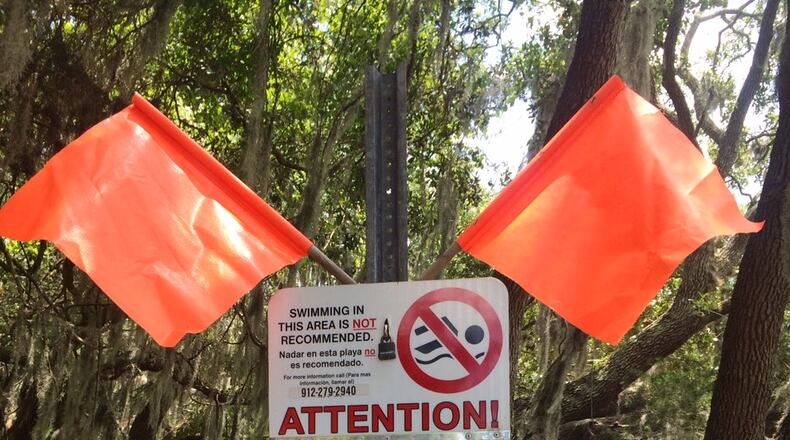They're tiny particles you can't see, but they are bad enough to warrant an advisory.
"We're notifying the public that bacteria levels are up, due to the rain and all the activity," Bill Jenkins with the Glynn County Health Department said.
The Health Department says swimmers at St. Andrews Beach need to proceed with caution. The portion from Marcy Lane to the St. Andrews picnic area are all affected -- and are marked with signs and orange flags. Specifically, the intestinal bacteria found is called entroccocial. If swallowed or if it gets in an open wound, it can cause diarrhea, stomach cramps or other more severe issues.
"If the level of bacterial is that high, we wouldn't want to be swimming in it," Amanda Schwaigart said.
Richard Jenkins has been coming to St. Andrews Beach for the past 35 years. He isn't too worried about the warning.
"It's all the ocean, so if it's bad there, it's going to be bad everywhere," he said.
We found out the Environmental Protection Department tests the waters twice a month, meaning bad bacteria is spotted fairly quickly. Still, some say they aren't taking any chances.
"I do have kids and I definitely wouldn't take them swimming there this weekend," Jamie Jones said.
If you do decide to swim, the Health Department suggests you stay waist deep. Wash your hands and body when you get out and thoroughly clean your fish if you catch any. New sample results for this area will be out next week.
We did a check of other local beaches. Duval county and Flagler counties have not issued any advisories this year. St. Johns County had one bad bacteria day.
Jekyll Island's Facebook page posted the following information on Action News' Facebook page:
"TO ALL CONCERNED: Jekyll Island beaches ARE NOT closed! The waters surrounding Jekyll Island are tested weekly. One of the seven test points, at St. Andrews picnic area on the river side of the island regularly has elevated bacteria levels due to abundant wildlife and NOT from man-made pollution. All of the oceanfront beaches have normal test results. Please see the attached for more information - http://www.coastalgadnr.org/node/2130."
About the Author
The Latest
Featured


